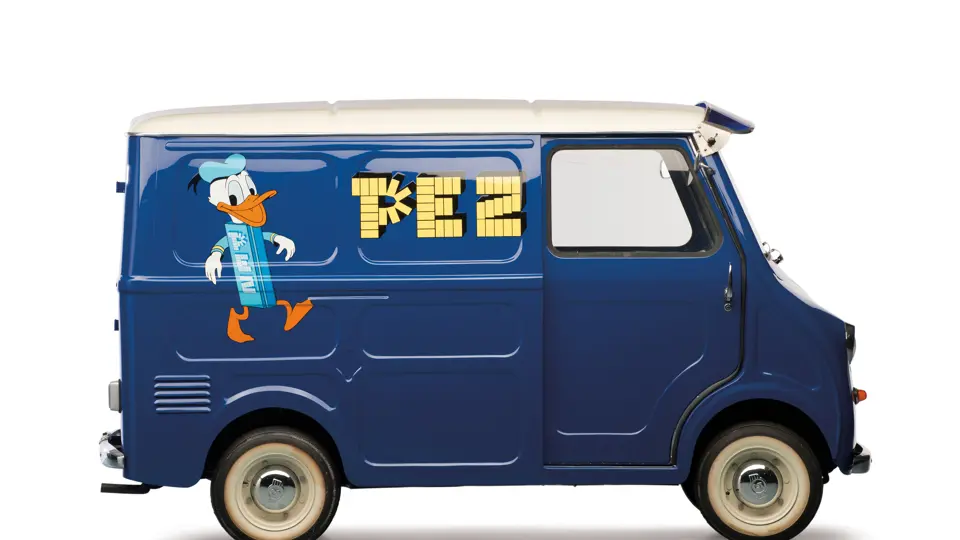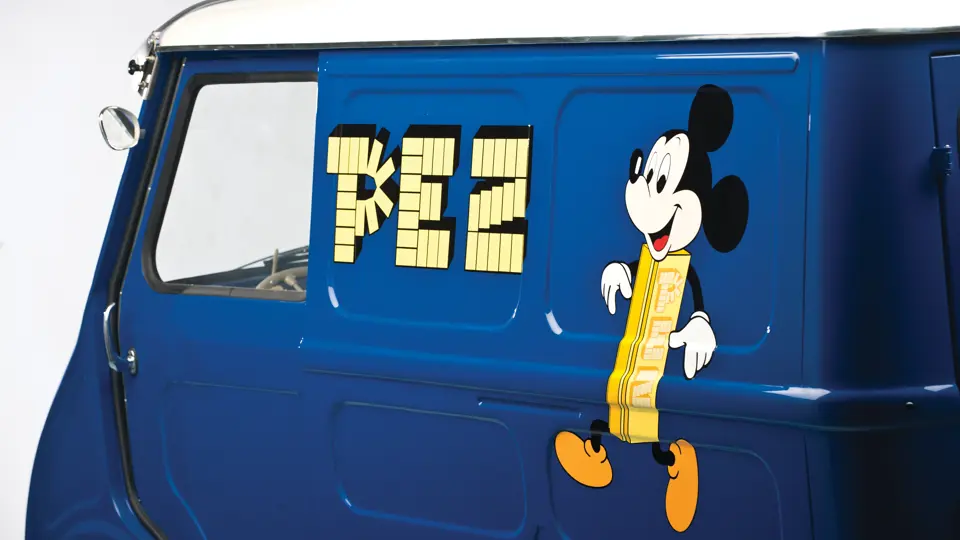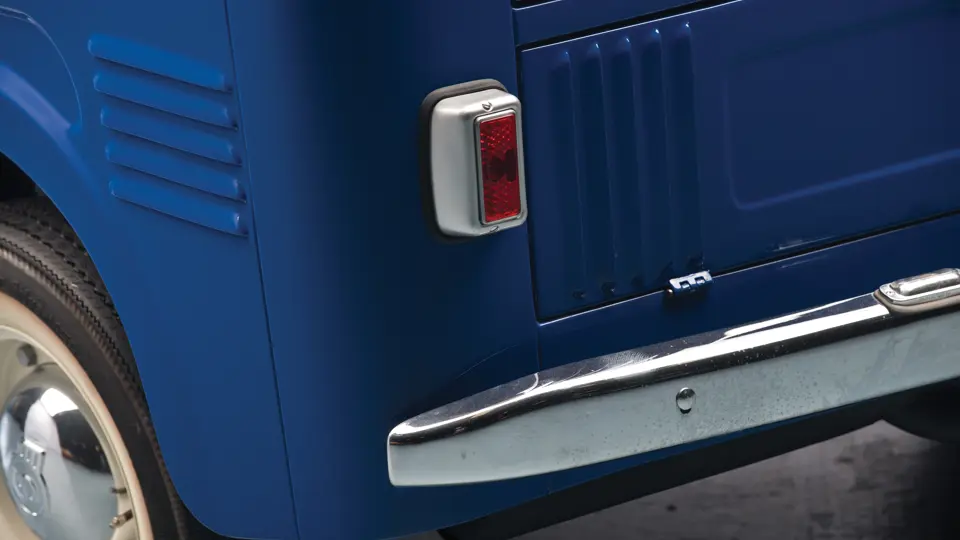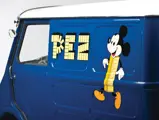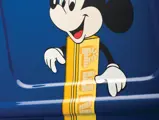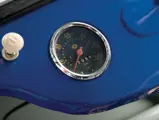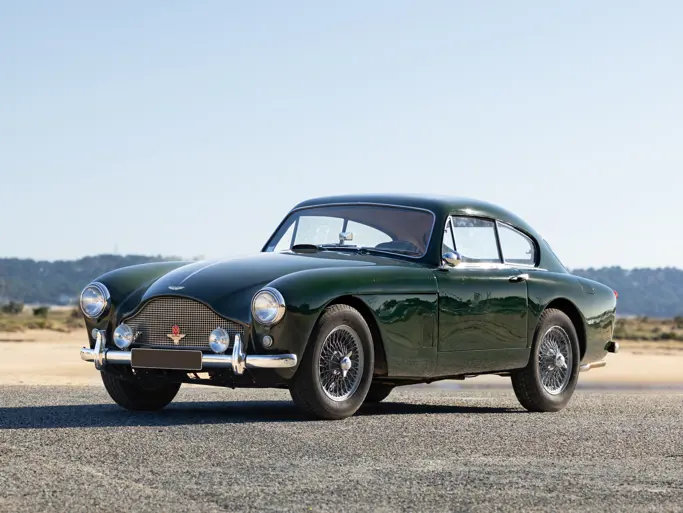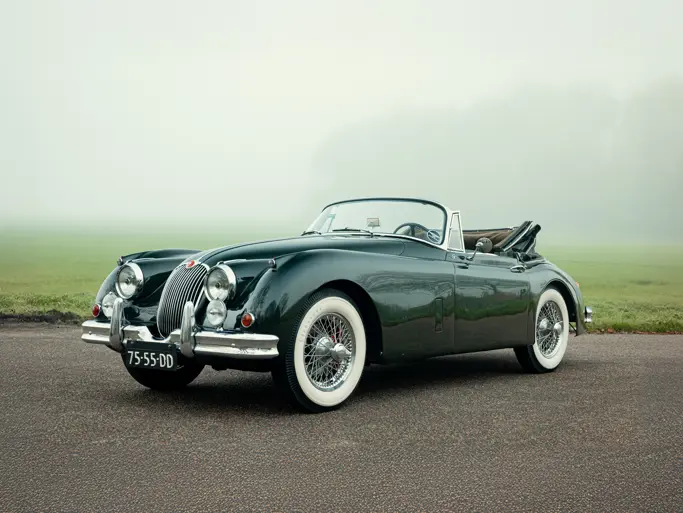Fully restored and exceptionally rare.
SPECIFICATIONS
Manufacturer: Hans Glas GmbH
Origin: Dingolfing, Germany
Production: 3,665
Motor: Glas 2-cyl., 2-stroke
Displacement: 398 cc
Power: 20 hp
Length: 9 ft. 6.5 in.
Identification No. 08233608
The evolution of the Goggomobil Transporter van has developed from its origins as a utility van to a coveted collectible. The Deutsche Bundespost, the German postal service, was looking for a new transport vehicle to replace the three-wheel Tempo trucks they had been using. Hans Glas GmbH, maker of Goggo scooters and Goggomobil cars, created a small, economical van by replacing the sedan bodies their four-passenger, 250-cubic centimeter two-stroke cars. Suspension was independent on all wheels, using coil springs and swing axles. A larger 398-cubic centimeter engine was later introduced, a welcome feature in a cargo vehicle.
Designed to postal specifications, the Transporter van also found favor with tradesmen and businesspeople, who purchased nearly half of the 3,665 units produced from 1957 to 1965. The vehicles were cute, and a business logo on the side was sure to be noticed. That is certainly the case with this 398-cubic centimeter PEZ TL-400.
Originated in Austria, PEZ is a peppermint candy that is pressed in brick-shaped tablets. It was invented in Vienna by candy maker Eduard Haas III in1927, using family-owned baking powders. The packaging was distinctive from the beginning. Haas sold the mints in small tins, but he soon developed the convenient dispensers for which PEZ is known today. The first dispensers resembled a cigarette lighter, and in fact, the PEZ mints were sold as an antidote to smoking, or as a palliative for smoker’s breath. The name derives from the first, middle, and last letters of pfefferminz, the German word for peppermint.
After World War II, during which sales lagged, promotion was intensified. Eduard Hass introduced PEZ in the United States in 1952. In 1955, the company put attractive heads of toy characters on the dispensers and marketed the candies to children. Among the first were Mickey Mouse and Santa Claus. Over the years, more than 25 flavors of PEZ have been offered, including three sugar-free recipes and five kosher types.
In 1987, small feet were added to the base of PEZ dispensers to enable them to stand upright. Since 1950, more than 1,500 types of dispensers have been released. Not surprisingly, they have become collectible. There are more than 550 unique types, many appearing in several variations. The company’s general rule has been that heads should not resemble any real person, although a set of Bicentennial dispensers carried generic faces in the historical garb of Betsy Ross, Daniel Boone, and Paul Revere. There are NASCAR dispensers, Star Trek dispensers, Wizard of Oz dispensers, and a myriad of others. PEZ collectors have gathered annually since the first convention was held in Mentor, Ohio in June 1951. The best-selling dispenser of all time remains the Santa Claus edition.
Given its Austro-Germanic origins, it is fully appropriate that the PEZ logo appears on a Goggomobil Transporter van. This fully restored TL-400 example features the Mickey Mouse dispenser and has the company name spelled out in PEZ bricks in the format of the company logo. Dark blue with a white top, it has grey upholstery and handsome varnished wood slats on the floor. Detailed in excellent fashion, it has the characteristic translucent blue windshield visor, 10-inch whitewall tires, and chrome bumpers. Given its rarity in the world of vans, this could be the perfect vehicle in which to attend the next PEZ collectors’ convention.
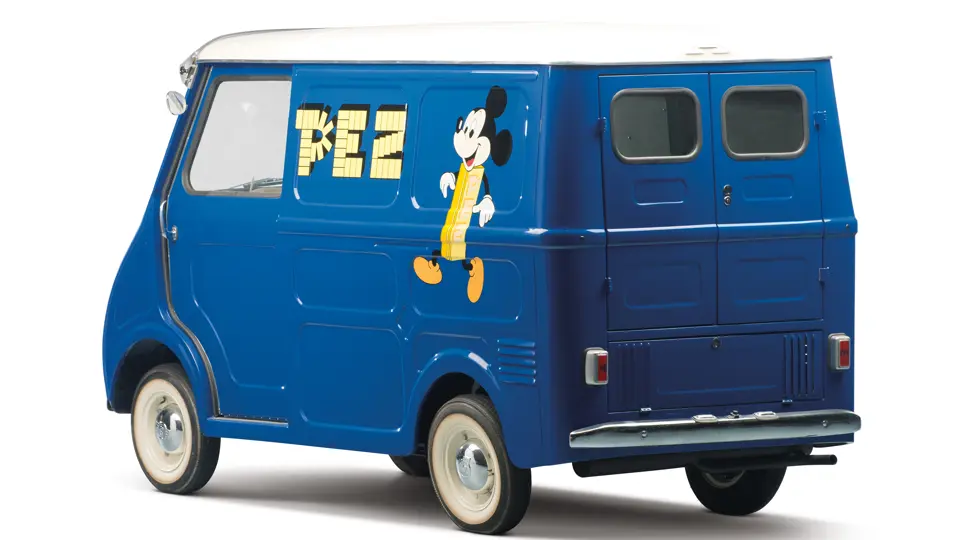

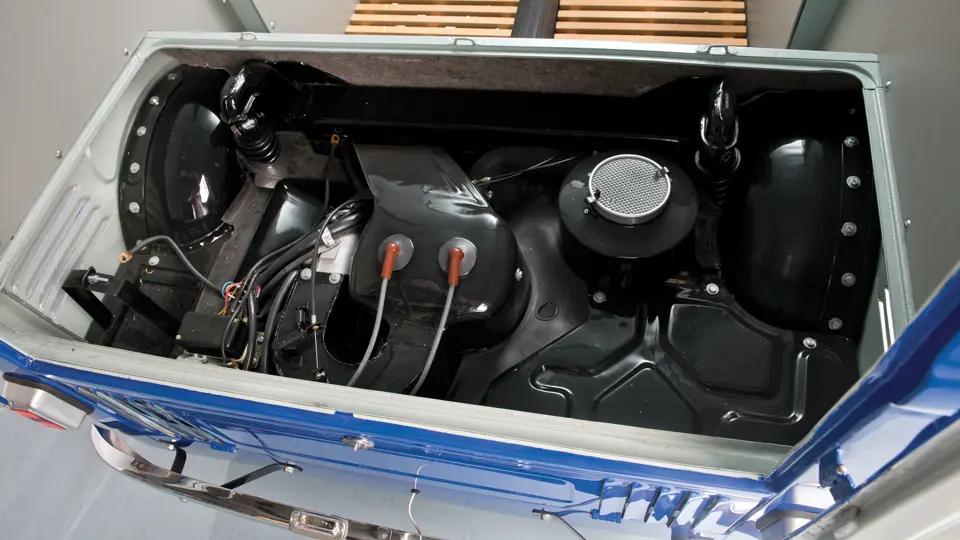

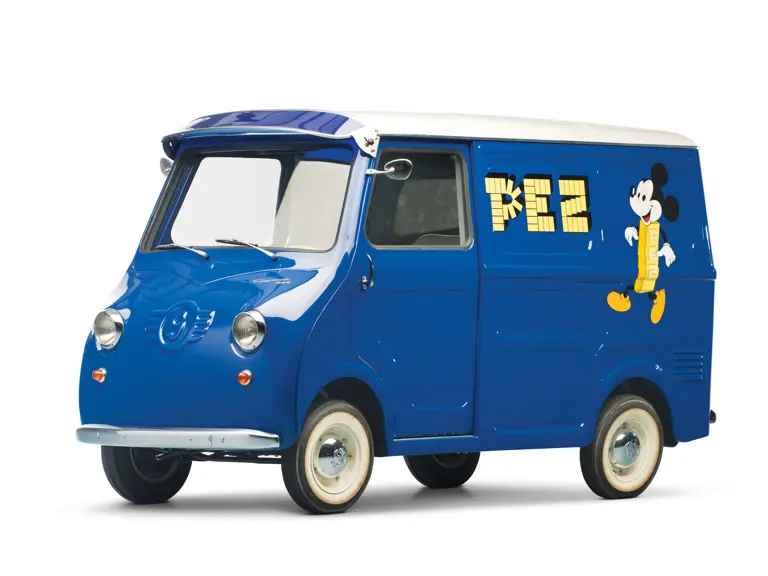
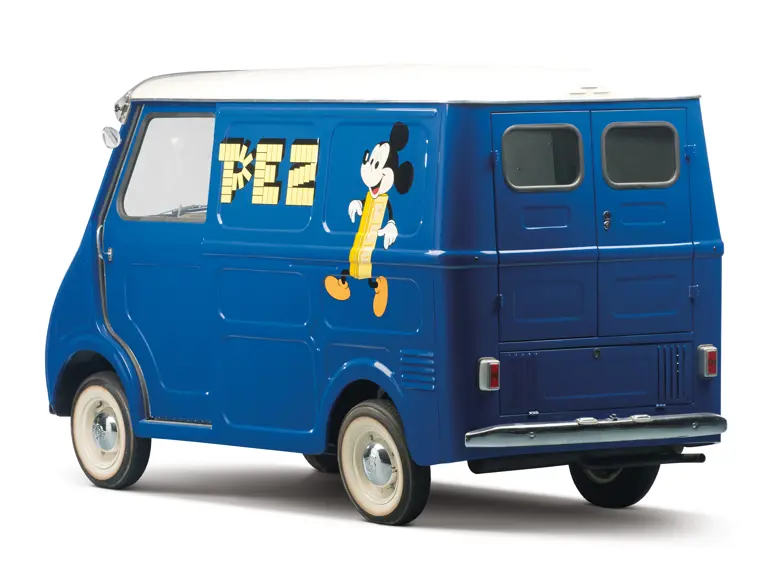
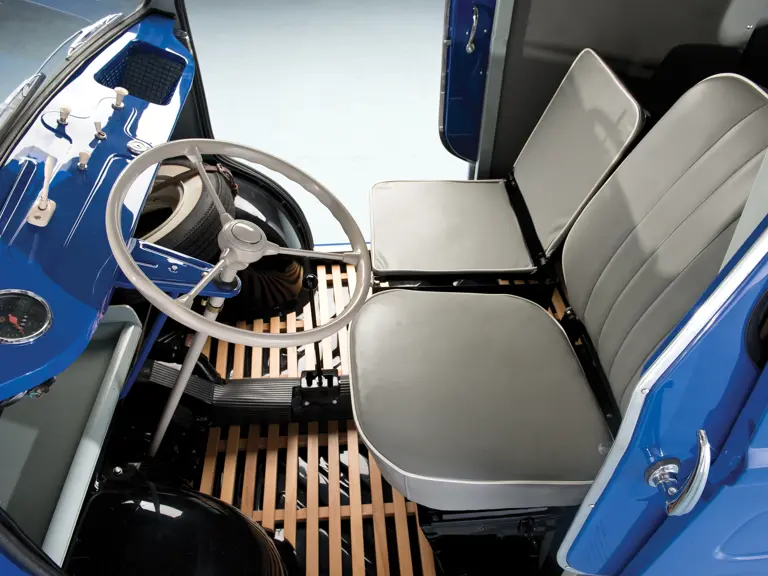
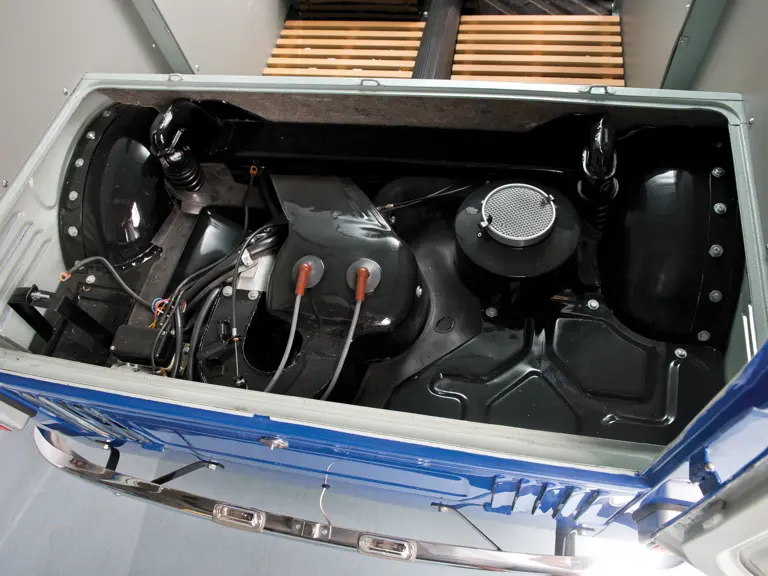
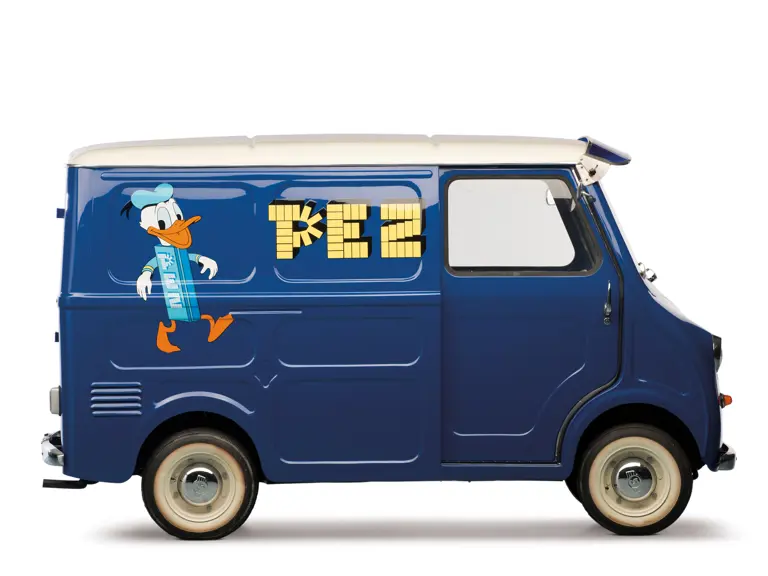
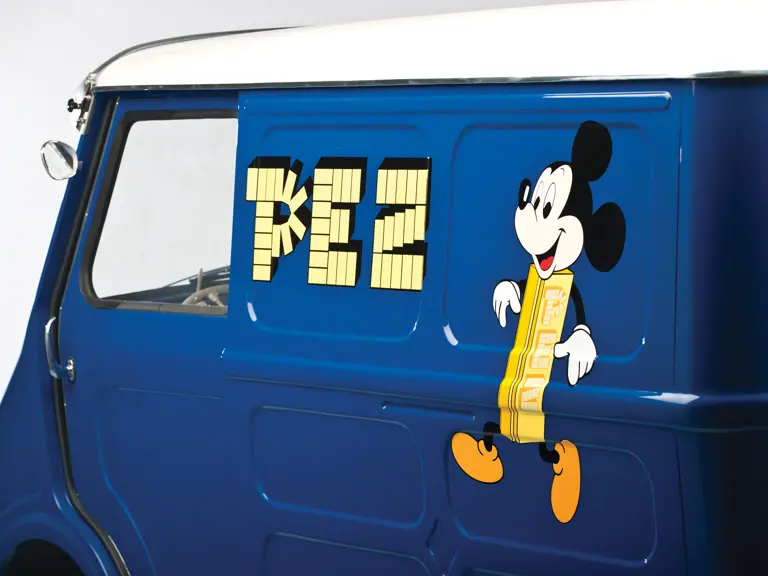
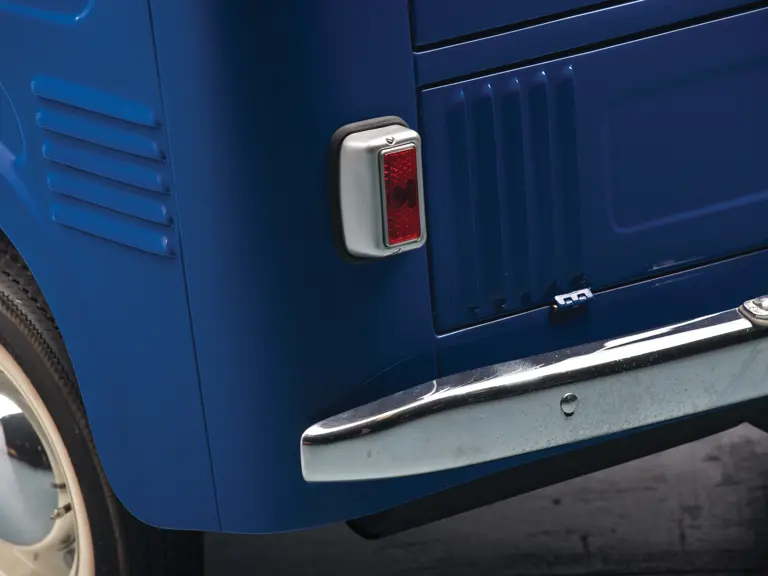
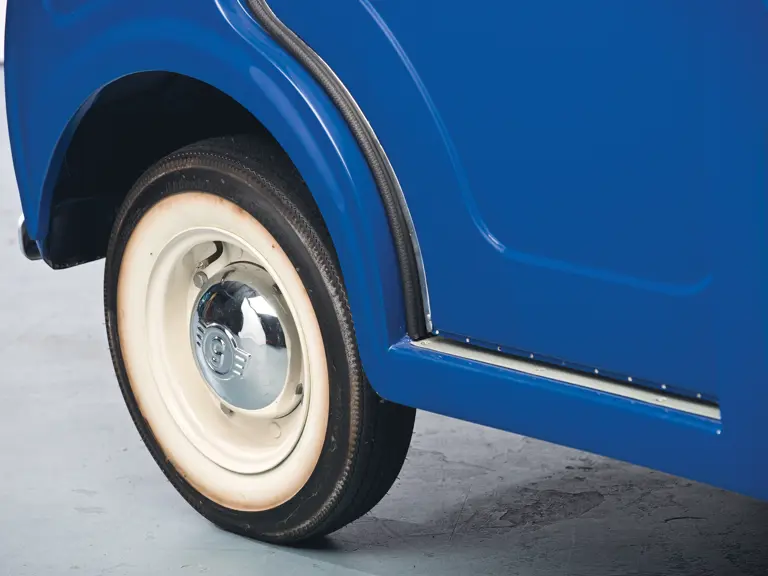
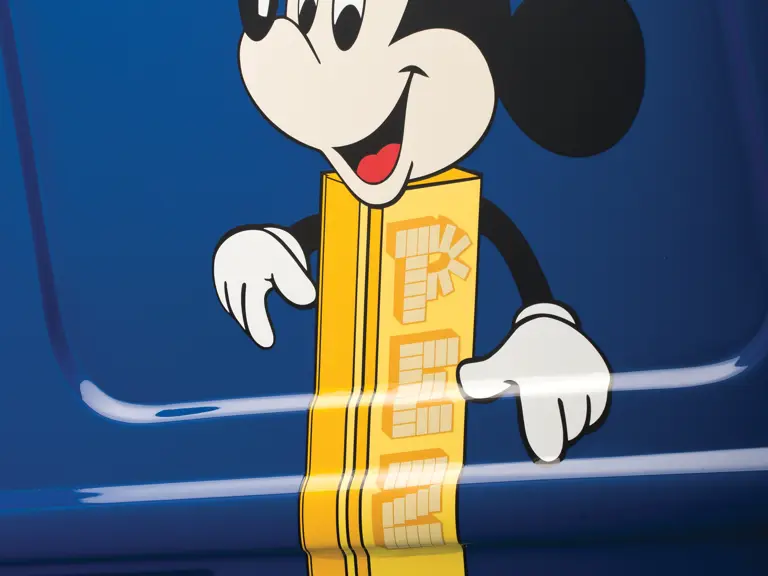
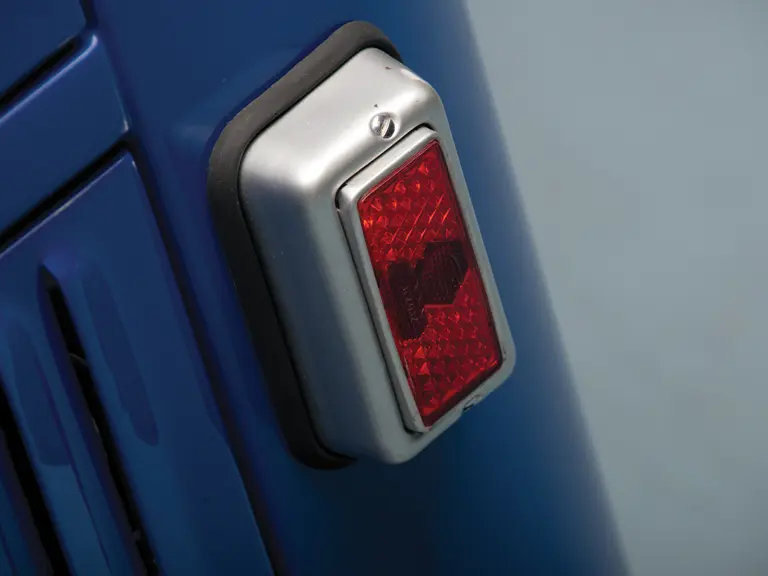
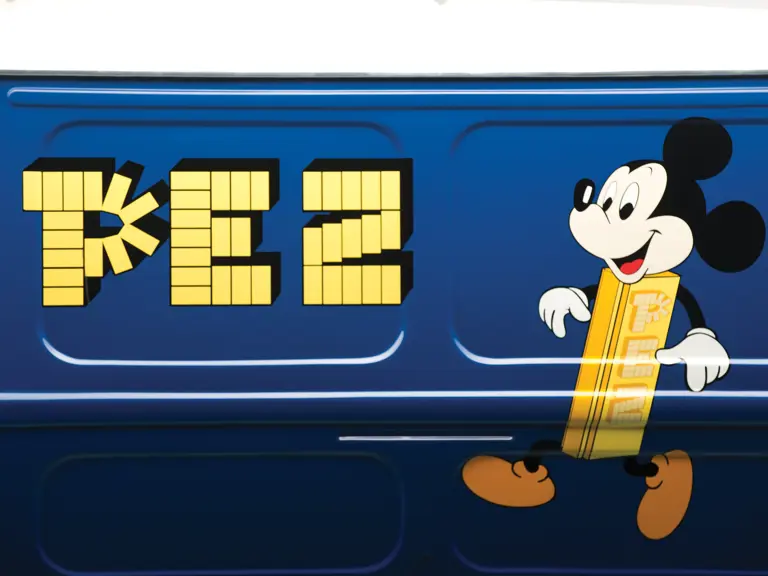

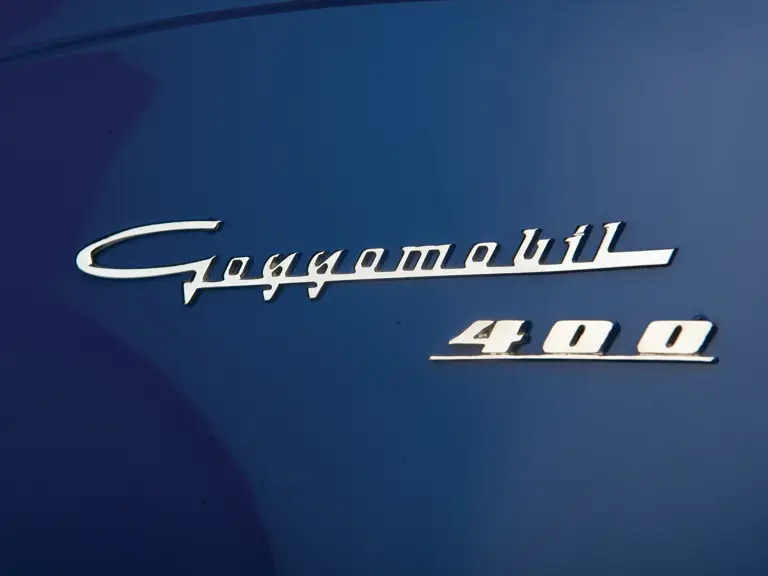
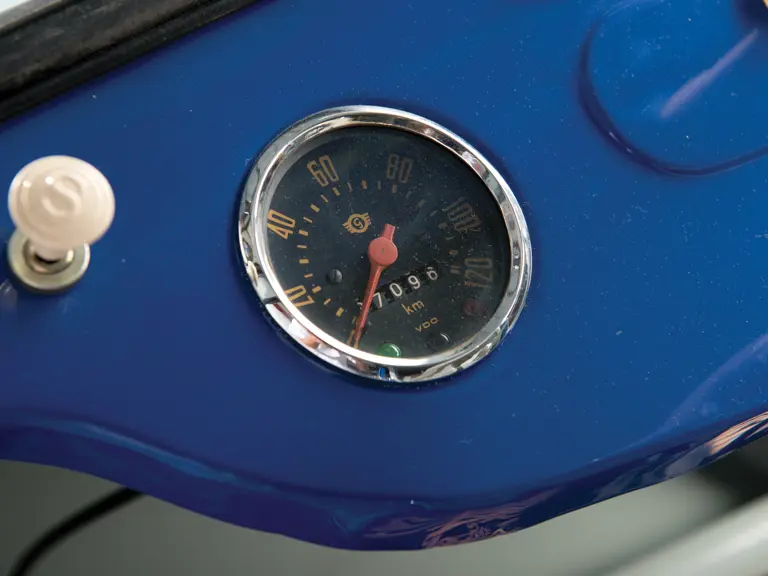
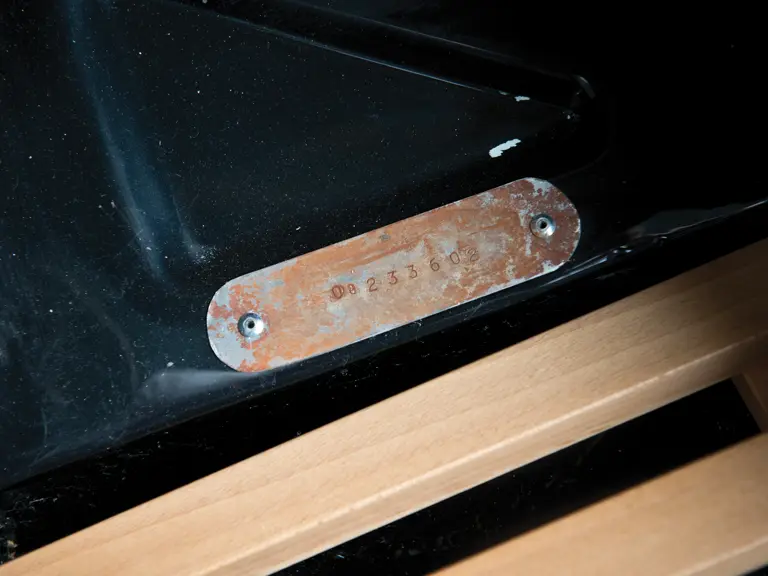
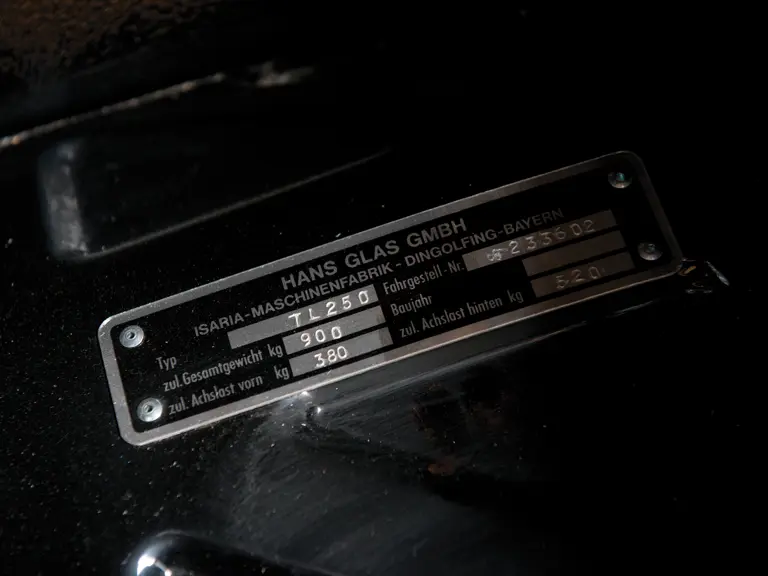
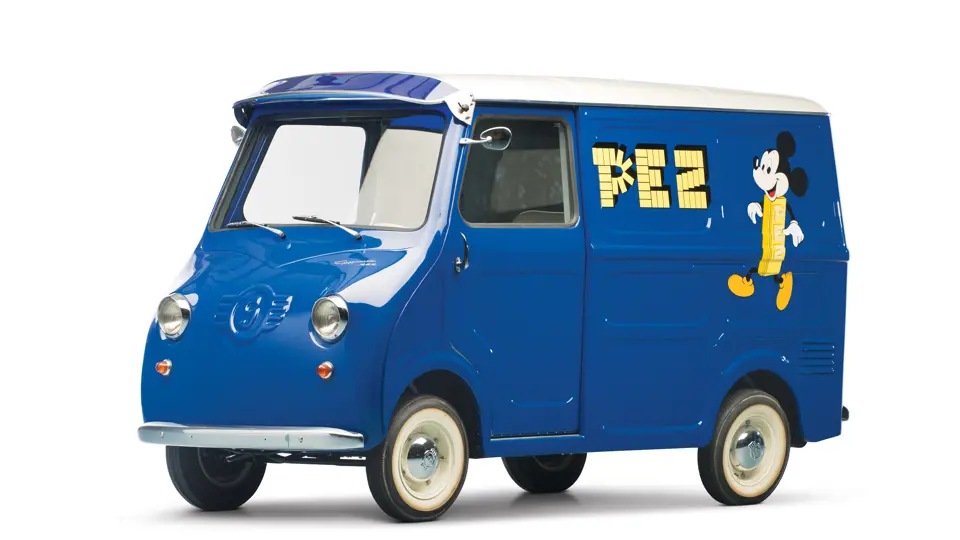
 | Madison, Georgia
| Madison, Georgia
